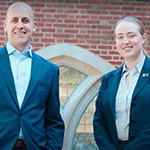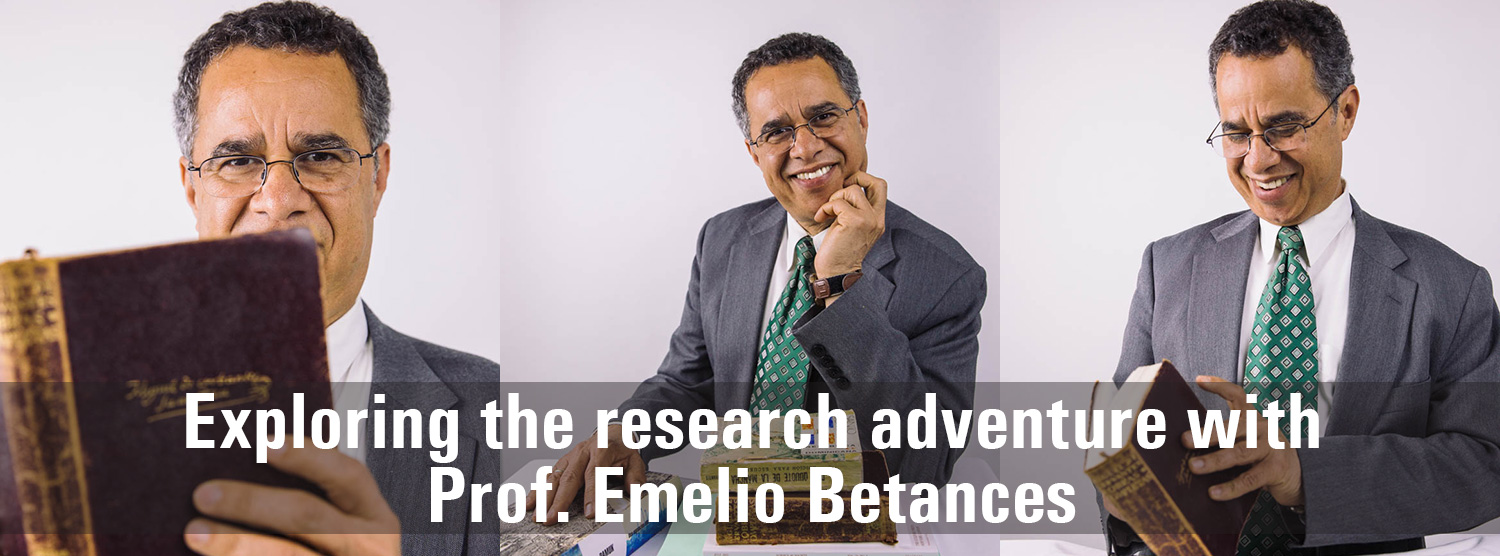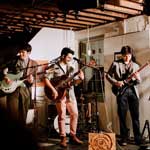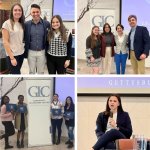

Picture this.
You’re researching gender roles present in Latin American music and are wondering how they reinforce or contradict gender roles that exist within Latino cultures.
Or you’re learning about immigration reform in class and are curious about the societal causes that are inherently linked to this larger political discussion.
Or perhaps you are spending a semester abroad and are interested in the cultural significance of the historic architecture you pass by everyday on your way to class.
How exactly would you get started?
Professor Emelio Betances has the answer.
A professor in both Sociology and Latin American, Caribbean, and Latino Studies, Betances understands first-hand the effectiveness of using sociological theories to understand Latin American society, and developed the proper skills and tools to do so. It’s a strategy that Betances has found so efficient, he’s passed it along to his students through an invitation to participate in, what he calls, a “research conversation.”
The research conversation
The research conversation is simple: you do research on a particular subject, event, or culture that you want to learn more about. Then you use that research to inform and guide a conversation with the people who have lived the experiences you are trying to understand.
According to Betances, it is a cornerstone of sociological research, and despite one’s research in the field, the results are never what you would expect.

“Sociological research is a conversation and an adventure, because you don’t know what’s going to happen," Betances said. “I use the ‘conversation’ term as a strategy to attract students, so they can think, ‘it’s not so hard!’ And they will want to participate in the conversation, too.”
Students want to participate in the conversation that's taken place already, as well as contribute something new.
"It requires that you find out what others are saying in the sociological literature," explained Betances. "Once you have identified the leading questions of concern to scholars, you need to formulate your own research interrogations. This prepares you to go to the field to find out the answers to the questions you have raised and make your own contribution.”
Betances invited two of his advisees—Shelby Reese ’18, a Latin American, Caribbean, and Latino Studies (LACLS) and Spanish double major with a sociology minor, and Mairead McCarthy ’18, a LACLS/Spanish and Sociology double major—to join the conversation.
Participation in the research conversation involves some give and take. When adding to the conversation, Reese explained, "You have to be responsive to what others are saying, but you're also making your own little discoveries. You can't just conduct your research in a vacuum."
Internationalizing their research

McCarthy is putting her skills to use by spending the fall semester abroad in Cuba. There, she’s able to understand the social side of the Latin American democracy (along with its ties to the US), all thanks to Betances.
“In one of our last meetings before I went abroad, Professor Betances offered to connect me with academics in the Caribbean that he knew,” said McCarthy. “He offered a few suggestions of places to visit in Cuba—like Plaza de la Revolución and club Tropicana—that are very meaningful to the history of Latin American government.”
Reese will also have an abroad experience for the spring semester to Mexico City. Betances has acted as her “personal mentor,” and the two have worked closely to ensure that Reese feels comfortable and prepared to conduct her own research in a place that she’s spent so much time studying.
“I want Shelby to have the basic skills of research and interviews before she goes, so she can do it on her own in Mexico,” Betances said. “I’m training her so she’s prepared. I’ve tailored assignments for her so she develops these important skills.”
These assignments range from reading excerpts from important sociologists’ novels, to watching interviews Betances recorded in the Dominican Republic, and noting how he deviated from his original script.
“All that I’m learning from him is going to be so useful in Mexico,” said Reese.
Moving forward
Along with providing lessons to these students on researching and interviewing structures, Betances taught Reese and McCarthy the importance of broadening their horizons, taking initiative, and the power of learning.
“He’s teaching me how to learn,” said Reese. “He’s boosting my knowledge as a person, not just in the grades for his class.”
Betances also pushed McCarthy outside of her comfort zone to connect with people from fields she isn’t totally familiar with. She deems this—the approach to academia cross-sectionally—the most valuable skill she’s taken from Professor Betances.
“He doesn’t confine himself to knowledge of one topic,” said McCarthy. “He really shows his students how things are interconnected.”
In addition to his work in two departments, publishing his most recent book, In Search of Citizenship: Social Movements and Democratization in the Dominican Republic, and embarking on new exploration of literature in the northern region of the Dominican Republic, Betances takes his role as a mentor very seriously, in part because he is cognizant of the impact he can have on his students.
“If you play the violin, you can practice for seven hours. But if you have a good teacher, he’ll teach you skills that you only have to practice for five,” Betances said. “The idea is to get students to work and learn more effectively, because they have other things to do. I try to teach them the skills that they need in their life, so they can do more in less time.”


